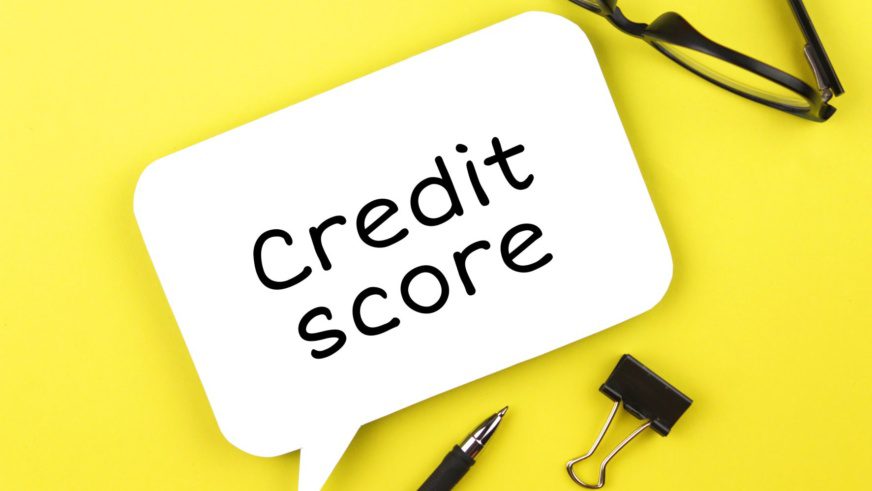
Navigating the labyrinth of credit scores can be daunting. But don’t fret, we’ve got you covered.
You’re about to embark on a journey that’ll demystify the different ranges and what they mean for your financial health.
We’ll delve into factors influencing your score and strategies to boost it up. So, buckle up!
A better understanding of this critical number is just around the corner.
Key Takeaways
- Credit scores are calculated based on payment history, credit utilization, credit history length, credit mix, and recent credit applications.
- Different ranges of credit scores include poor, fair, good, very good, and excellent.
- Factors influencing credit scores include payment history, debt amount, credit history length, credit report errors, and identity theft.
- Achieving a good credit score involves paying bills on time, reducing debt, limiting new credit applications, and keeping old accounts in good standing.
Understanding the Basics of Credit Scores
You’ve got to understand the basics of credit scores before you can start improving yours. It all begins with two critical aspects: score calculation methods and credit report basics. Once these are clear, you’re well on your way to navigating the intricacies of credit scores.
Score calculation methods vary between different agencies, but there’s a general framework they tend to follow. Your payment history is typically the most significant factor, accounting for about 35% of your score. Late payments, defaults or bankruptcies can significantly harm your score.
Next up is ‘credit utilization,’ making up around 30% of your score. This term refers to how much of your available credit you’re using. If it’s too high, lenders may see you as a riskier borrower.
The length of your credit history (15%) also plays its part – longer histories usually lead to higher scores. The mix of types of credits (10%) such as mortgages, car loans or student loans can positively affect your score if managed well. Lastly, recent applications for new credit account for approximately 10%. Multiple applications in a short time might hurt your score as it could signify financial stress.
The information used in these calculations comes from your credit report – another crucial component in understanding credit scores. Credit reports contain records detailing how much debt you have, who owes it and whether it’s been paid back timely – essentially a snapshot of how responsibly you handle borrowed money.
The Different Ranges of Credit Scores
Let’s delve into the various categories that make up a person’s financial rating. Credit scores, those three-digit numbers, are divided into ranges: poor, fair, good, very good, and excellent. But here’s where credit score myths come in. Many believe that anything below 700 is a bad score – this isn’t necessarily true.
To clarify, consider these ranges: typically scores from 300-579 fall under ‘poor’, 580-669 are ‘fair’, 670-739 are deemed as ‘good’, 740-799 are classified as ‘very good’ and finally, anything above 800 is considered ‘excellent’. Your position within these ranges can dramatically impact your financial options.
Now to debunk another myth – you can’t improve your credit score overnight. Your Score Improvement Timeline depends on several factors such as payment history and debt level. Establishing a pattern of responsible borrowing habits over time is key to improving your score.
Remember not all debts weigh equally on your credit rating. Paying off high-interest revolving credit like credit cards can boost your score more than paying down installment loans like mortgages or student loans.
Keep this in mind while navigating through the intricate world of personal finance management. An understanding of different credit scores combined with debunking common myths helps guide your path towards achieving an excellent status.
Determining Your Credit Score: Factors and Influences
Understanding what influences your financial rating isn’t as complicated as it might seem. Several key factors shape your credit score, including payment history, the amount of debt you owe, and the length of your credit history. It’s important to monitor these aspects continuously to maintain a favourable score.
One factor that could drastically impact your score is credit report errors. If inaccurate information is reported, this can skew your rating negatively. As such, you should review your reports regularly and take immediate action if discrepancies are discovered.
| Factors Influencing Credit Score | Emotional Impact | Strategies for Improvement |
|---|---|---|
| Payment History | Anxiety over missed payments | Set up automatic payments |
| Debt Amount | Stress about growing debt pile | Create a budget and stick to it |
| Length of Credit History | Fear of starting from scratch | Open a line of credit early |
Identity theft also has significant impacts on credit scores. If someone steals and misuses your identity for financial gain, they can rack up substantial debts in your name – greatly hampering your score. Therefore, taking measures to protect yourself against identity theft is crucial.
In conclusion, understanding how different elements influence your credit score empowers you to take control of it. By staying vigilant about monitoring errors in reports and protecting against identity theft while managing other influencing factors diligently, you can maintain good financial health.
Remember: knowledge is power when it comes to navigating the world of finance!
Achieving a Good Credit Score: Tips and Strategies
Maintaining a healthy financial record isn’t just about understanding the factors that influence it. It’s also about implementing effective strategies to ensure your rating stays favorable. Your credit score, a numerical representation of your creditworthiness, becomes vital when you’re trying to secure loans or apply for credit cards.
Here are some ‘Score Improvement Methods’ which can guide you on this journey:
- Paying bills on time: Late payments negatively affect your score.
- Reducing debt: Lowering the amount of outstanding debt helps increase your score.
- Limiting new credit applications: Frequent inquiries and opening new lines of credit can lower your score.
- Maintaining old accounts in good standing: Age of accounts plays a role in determining scores.
Now, if you’re struggling with low scores and want professional help, consider hiring ‘Credit Repair Services’. These services analyze your financial history, identify areas impacting your score negatively, and design tailored solutions for improvement. However, remember that no service can guarantee immediate results – improving credit takes time.
Remember not to underestimate the importance of regularly monitoring your report. It allows you to quickly identify and dispute any errors that could be pulling down your score. In addition, creating a budget and sticking to it aids in managing finances effectively without accumulating unnecessary debt.
Achieving and maintaining an optimal credit range is not just achievable but also manageable once you understand how it works. Your consistent efforts towards financial discipline will pave the way for better opportunities like lower interest rates or higher loan approvals. Remember, every step taken towards improving your financial health matters!
The Impacts of a Good Credit Score on Your Financial Life
You’ll find that having a solid financial status opens up a world of opportunities for you, from securing low-interest loans to getting approved for premium credit cards. This all hinges on your credit score, a number that can greatly impact your life financially.
However, there are many Credit Score Misconceptions floating around that may deter you from achieving a higher rating.
One common misconception is the belief that checking your credit report will negatively affect your score. This is false; it’s entirely possible and advisable to frequently review your report without any adverse effect on your score.
Another misunderstanding involves thinking a low credit score will haunt you forever. In reality, with focused effort and appropriate financial management strategies, you can change this narrative.
The Score Improvement Timeline isn’t instant but depends largely on the steps taken towards improving one’s financial habits. Paying bills promptly, reducing debt levels, and maintaining lower balances on credit cards contribute significantly towards boosting one’s credit score over time.
Moreover, holding onto old debts because they have good payment history or closing unused credit accounts aren’t necessarily beneficial practices as commonly thought. Your focus should be more about keeping low balances and paying off debts rather than just managing them indefinitely.
Frequently Asked Questions
How Can I Dispute Errors on My Credit Report That May Be Affecting My Credit Score?”
You can dispute errors on your credit report affecting your score by initiating a process called ‘Report Verification.’
Firstly, procure a copy of your report from each credit bureau.
Then, identify and document the errors.
You’ll need to write a detailed dispute letter for ‘Error Rectification’ to each bureau that lists the inaccuracies.
Include copies of documents supporting your claim.
They’re obliged to investigate within 30 days.
Is There a Difference Between a Free Credit Report and a Paid One?”
Yes, there’s a difference between a free credit report and a paid one.
You might think they’re identical, but the free report has limitations. It typically offers a snapshot of your financial health, not an in-depth analysis.
On the other hand, paid reports provide comprehensive details including all lines of credit and payment history. They’re more beneficial if you’re serious about understanding and improving your credit score.
How Often Does My Credit Score Update or Change?”
You’re probably wondering how often your credit score updates or changes. Typically, lenders report to the credit bureaus once a month, so your score can fluctuate regularly due to these credit updates.
Factors like payment history and new credit inquiries play a significant role in these score fluctuations. It’s important to monitor your score regularly for any unexpected changes that could signal errors or fraud.
What Are the Consequences of Having a Joint Account or Co-Signing a Loan on My Credit Score?”
Having a joint account or co-signing a loan is like entering into a financial marriage. You’re tied together, sharing ‘Account Responsibility’. If the other party mishandles the account or defaults on payments, it’ll negatively impact your credit score.
It’s a double-edged sword; you could benefit from their good financial habits but suffer from their poor ones. Be aware and cautious of these potential Score Impacts before making such commitments.
Can Closing Old Credit Accounts Negatively Affect My Credit Score?”
Yes, closing old credit accounts can negatively impact your credit score due to account longevity. Credit bureaus may view long-standing accounts as proof of your reliability.
If you close an old account, it reduces the average age of your accounts which could lower your score. Also, inactive account consequences include reduced credit utilization ratio which might affect your score negatively.
Conclusion
In sum, your credit score is the magic number that can open doors or slam them shut in your financial journey. It’s crucial to not just know it, but also understand its ins and outs.
With strategic planning and diligent action, you can turn even a fair score into an excellent one. Remember, achieving a top-tier credit score isn’t rocket science – it’s all about smart financial decisions!




